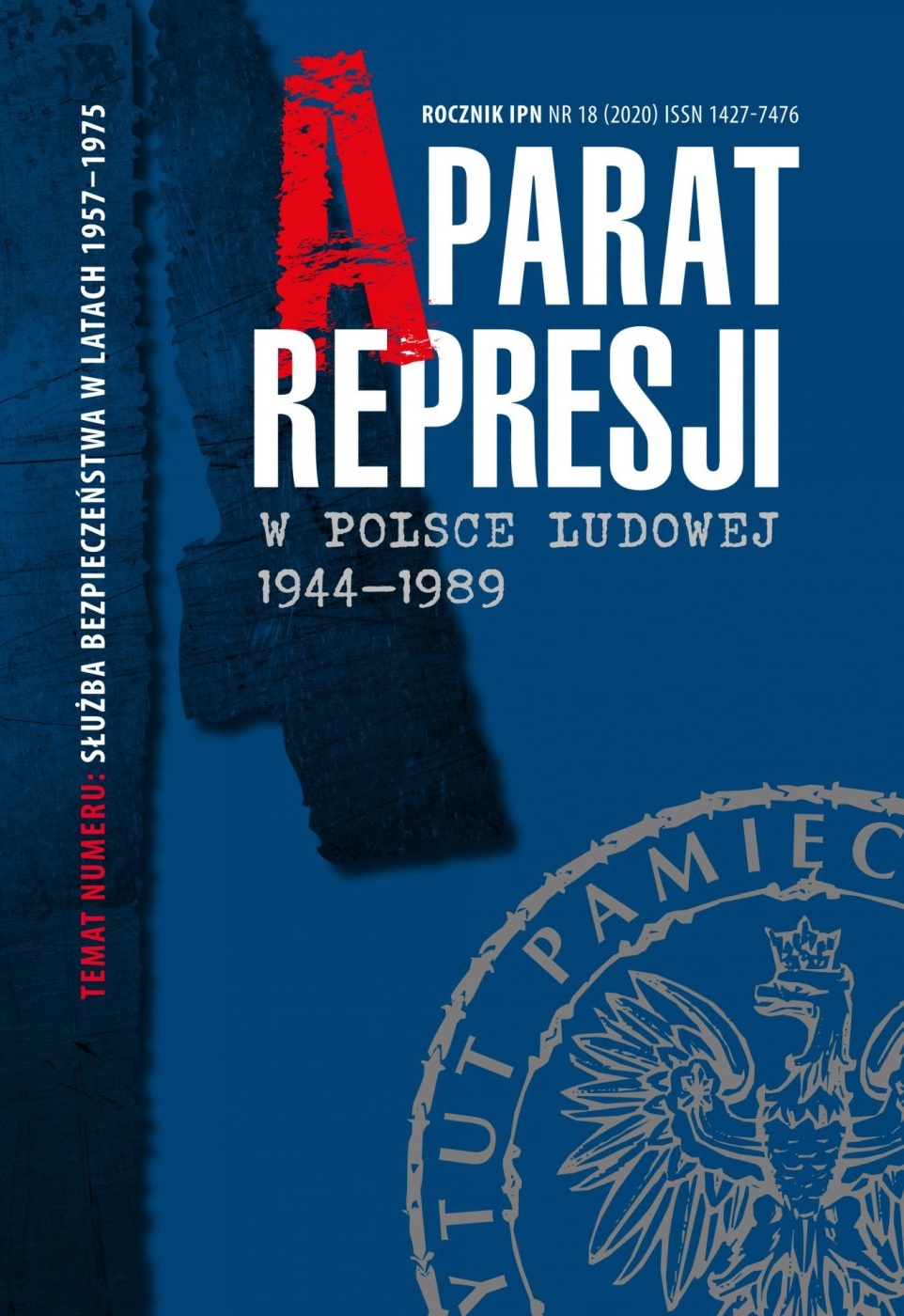Some Aspects of the Cooperation between the Hungarian and Soviet Intelligence Services
Aparat Represji w Polsce Ludowej 1944-1989, No. 18 (2020), pages: 431-446
Publication date: 2023-03-29
 https://doi.org/10.48261/ARPRL201815
https://doi.org/10.48261/ARPRL201815
Abstract
In the spring of 1950, the Soviet government forbade intelligence work against the so-called people’s democratic countries. Simultaneously, on 17 April 1950, the Politburo of the CPSU decided to create links between the intelligence services of the Soviet Union and the socialist countries in order to help them in the intelligence against the Western states and “Tito’s clique” and to create Soviet political intelligence representation in these countries. In Hungary the ways and methods of the cooperation were worked out in May 1950 and the first group of Soviet advisors also arrived. In the first period the cooperation meant the exchange of intelligence information, later it included also advice on structural and technical questions, using the intelligence opportunities of the partners, and joint actions.
Keywords
tajne służby • KGB • wywiad • Iwan Sierow • współpraca • Węgry • ZSRR secret services • KGG • Intelligence • Ivan Serov • cooperation • Hungary • Soviet Union
References
Állambiztonsági Szolgálatok Történeti Levéltára (Historical Archives of the Hungarian State Security – ÁBTL), Budapest
Государственный архив Российской Федерации (State Archive of the Russian Federation – GARF), Moscow
Magyar Nemzeti Levéltár (National Archives of Hungary – MNL OL), Budapest
Baráth M., "A politikai rendőrség újjászervezése 1956 után" [Reorganisation of the political police after 1956], Történelmi Szemle, 4 (2008)
Farkas V., Nincs mentség. Az ÁVH alezredese voltam [No excuse. I was a Lieutenant Colonel at the ÁVH] (Budapest: Interart Stúdió, 1990)
Kolláth F., "A hírszerzés helyzete 1956. október 23 – a és 1957 júliusa közöti időben", in Történeti hűséggel, politikai felelősséggel. 1. Állambiztonsági szekció. Az MSZMP Belügyminisztérium Bizottsága elméleti tanácskozása (1982. június 16.). A Belügyminisztérium és szervei újjászervezése, a hatalom megszilárdításáért kifejtett tevékenysége, ed. J. Czink (Budapest: BM Könyvkiadó, 1985)
Krahulcsán Z., "KGB és III. Főcsoportfőnökség: egy kapcsolat vége…(?) A szovjet--magyar állambiztonsági együttműködés szabályozása 1989-ben" [The KGBand the III Department: end of a connection...(?). The regulation of the Hungarian and Soviet state security cooperation in 1989], Betekintő, 4 (2007), https://betekinto.hu/sites/default/files/betekinto-szamok/2007_4_krahulcsan.pdf, accessed 21 Jan. 2021
Советский Союз и венгерский кризис 1956 года. Документы,ред. Е.Д.Орехова, В.Т. Середа, А.С. Стыкалин (Moscov: Rosspen, 1998)
Москва и Восточная Европа. Становление политических режимов советского типа 1949–1953, ред. Т.В. Волокитина, Г.П. Мурашко,
А.Ф. Носкова, Т.А. Покивайлова (Moskva: Rossijskaja političeskaja ènciklopedija, 2002)
Лубянка, ВЧК–ОГПУ–НКВД–НКГБ–МГБ–МВД–КГБ. 1917–1960. Справочник, сост. А.И. Кокурин, Н.В. Петров, ред. Р.Г. Пихоя (Moskva: MF Demokratia, 1997)
Семичастный В., Беспокойное сердце (Moskva: Vargiusz, 2002)
Хлобустов О., Неизвестбый Андропов (Moskva: Jauza-Eksmo, 2009)
License

This work is licensed under a Creative Commons Attribution-NonCommercial-NoDerivatives 4.0 International License.
 Język Polski
Język Polski
 English
English



 PDF
PDF
